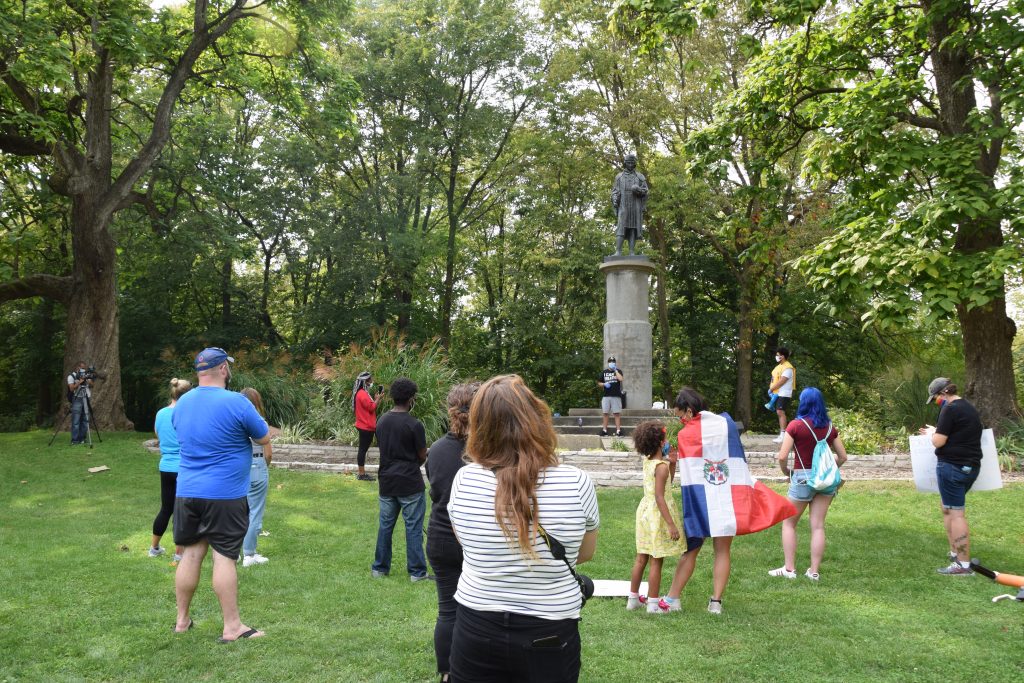
A statue of Christoper Columbus that long stood in Laura Bradley Park was taken down this past week, amidst a national reconsideration to the history of his actions.
After many public and private Peoria Park District and town hall meetings, the Peoria Park District Board of Trustees voted 4-2 on Sept. 25 to take the statue down and move it into storage, according to WCBU.
Now that the statue has been taken down, the park district will convert the area to a greenspace.
Sophomore political science and philosophy major Riley Burger said the statue should be replaced with someone significant from the area.
“I thought it was weird that they would even have a statue of someone with no relation to Peoria or Illinois in the first place when we could have someone like Betty Friedan,” Burger said. “She was a huge figure in the feminist movement in the 60s and 70s who’s actually from here.”
Libby Tronnes, an assistant professor of history at Bradley, works to educate students on what is fact and what is a myth surrounding this historic figure. According to her, Columbus’ action of enslaving and exploiting indigenous people has been pronounced more recently, as later generations of these groups are speaking out.
“People talk about revisionist history as if it’s a bad thing,” Tronnes said. “But the fact of the matter is, it’s a discipline based on incorporating new evidence as it’s found.”
The statue was a gift from the real estate developers of the Uplands neighborhood back in the early 20th century and was originally placed on the corner of Columbia Terrace and Institute Place. At the time, Columbus was considered a prominent and respectable figure in the United States, and many of this exact style of statue was being purchased and placed around the country.
“I think in 1992, being the 500 year anniversary of him stepping foot in the Western Hemisphere, you saw a lot of protest, a lot of anger,” Tronnes said. “People were tired of this guy somehow being the symbol of the beginning of what would become the U.S.”
Over the years, Peoria’s statue of Christopher Columbus endured many instances of vandalism and protest, and this year’s wave of civil rights protests sparked another debate surrounding its importance.
Representatives of the Knights of Columbus, religious communities, Black communities and indigenous communities, along with various passionate community members like Tronnes all came together to debate whether or not the statue should stay.
“I was happy to see Peoria’s diverse community was reflected in those participants and in those conversations,” Tronnes said. “I did a lot of listening. I spoke up when I thought a historical perspective could be helpful.”
Trones said, at one time, the Smithsonian counted around 100 Christopher Columbus statues in America and a significant number of them have come down in just 2020.
“One thing I think Peoria needed to be aware of during this vote is that all of these other cities are taking down their statues,” Tronnes said. “Did we really want to be the city that’s like, ‘No, we want to keep our statue’?”




